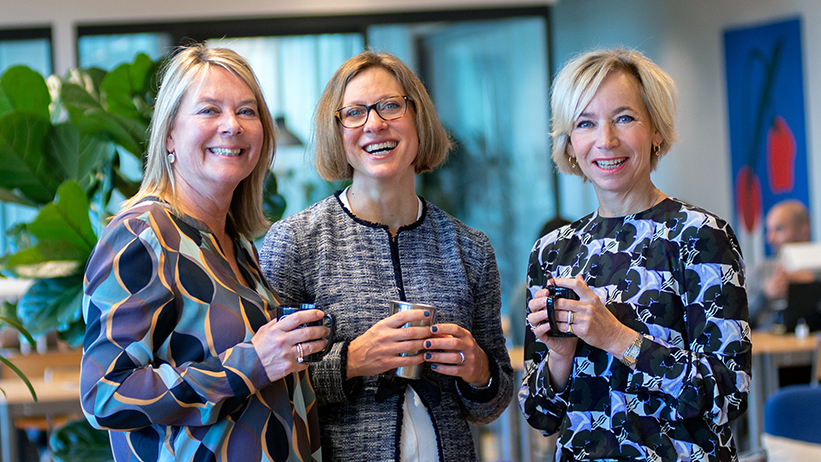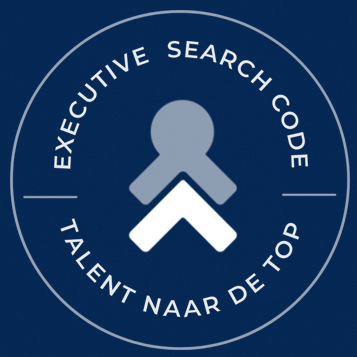Marca Wosoba
FINTCH IS FUN
As one of the leading ladies in the fintech industry, Marca Wosoba gives and gets a lot of energy from sharing her experience and expertise with young women in this innovative and dynamic space. She accompanied Josephine van der Vossen in the ‘rise up’ program of Money 2020 and gave a presentation before a female audience. ‘Rise up’ is designed to empower the next generation of female leaders in the industry to take their careers to the next level. One of Wosoba’s messages to women in the industry: it is very gratifying but very demanding as well. “You really have to be willing to roll your sleeves up as this is a very dynamic fast paced place, which is exactly what makes fintech fun” and she calls for women to join in.
London, where she worked for fourteen years before moving to Amsterdam to work in fintech, is a very long way from her birth place. In more than one sense of the word, that is. But, as she explains to Josephine van der Vossen and Ingrid Reichmann, growing up on a cattle farm in Eastern Iowa also laid an excellent foundation for a blossoming career in financial services. “Rural family life taught me a few things and shaped me as a person. I had quite a lot of responsibility at a very early age for instance. It also helped me to acquire a sound work ethic labouring regularly on our family farm. Looking back, I remember the rural environment as a place of high integrity and cooperativeness. As it should be, because how are you going to collaborate in the proper maintenance of the fence separating your acres from those of your neighbour if you can’t get along? These values definitely supported me later in my life and even carried me through very challenging times in my financial career.”
Wosoba left her native country eighteen years ago. She studied in England, started her career in Ireland before returning to The City to join RBS. That was in 2007, a pivotal time for financial services and a really critical period for the bank. “That was just before the ABN AMRO acquisition and a period of real personal growth for me as well, as there were enormous challenges within RBS. Those dynamics provided opportunities to move away from my original role in derivative sales into roles that were more strategic and product based. One of which was a role investigating the FX (Foreign Exchange) that was generated on the back of transaction services for RBS. I saw that as a great opportunity to learn about an area that was going through a huge innovation, if not internally then externally. It offered me a chance to leave a space which was perhaps a bit stagnant and unable to innovate because of technical challenges and regulatory issues that the bank was facing.”
At the end of 2014 you left banking to become Head of International Development at WorldFirst, a fintech firm. Were you ‘the only woman in the room’ then?
If I walked into a meeting room during my banking years it would not be uncommon to be the only woman in the room. It’s something you definitely adjust to in how you communicate and also in how you approach meetings and discussions. As there were so few women in my working environment then, I tended to overanalyse the ones I met. But when I joined WorldFirst I had to adapt back in a different way, as I was definitely not the only woman in the room there. I had to readjust to the way you communicate in a discussion in a diversified group.
How exactly did you readjust your communication mode?
When you are not the only woman in the room, it is easier for you to be heard as there is more of a balance of voices. Therefore I did not have to think as carefully about how to get my message across, how to be heard. On the contrary, I had to take a step back and remind myself: I don’t have to make myself heard, I am heard. That was a really nice adjustment to make.
In what other ways did the fintech working environment differ from what you were accustomed to?
For starters I really liked the problem solving, the attitude and atmosphere, but also the culture that I encountered. You work in a flatter organisation so it is much more hands on, everyone does their own presentations and you have less support. In a fintech firm you have access to very senior people that perhaps you never had access to before, but they will have expectations in terms of your delivery, pace and adaptation. And things like ownership and an entrepreneurial mind-set are vital in this demanding environment. Many want to be in fintech but are not ready for the autonomy. Because the rumours that those are necessary skills you will have to bring to the floor are all true. Fintech is a very dynamic fast paced place. But that is what makes it fun. So I never looked back really. After joining WorldFirst and leading the international expansion of the company I moved to Amsterdam eighteen months ago, where I started working as a consultant to the Global Reach Group executive team and as General Manager of Europe since January.
What does Global Reach Group do?
Global Reach is a financial services firm and a non-bank FX provider. We provide FX risk management solutions to corporates, financial institutions and small and medium sized enterprises. So we are very specialised within the product space but with an enormous product range. We have both a licence to provide payment services but also an investment firm licence that enables us to provide advice as well as more bespoke products for our corporate and financial institution clients.
The FX market is quite crowded, what does Global Reach Group do to stand out among its competitors?
Our added value is based on three pillars. The first pillar is products. We are one of the few non-bank FX providers that can offer not only spot contracts and forward contracts, but also options products. So we have the broad range of products to ensure that we are able to meet all the clients needs. Particularly those clients who have more sophisticated and complex businesses, so midsize corporates and financial institutions in particular. The second pillar is our people. We have the ambition to be the most reputable non-bank FX provider in Europe. To do that we have had to go out and secure and hire top talents. People who have experience in talking to Financial Directors and Treasurers about their cash management and international business. They really need to understand the complexity of it as well as our clients FX risk management, and to comprehend their business. Besides top people and products, our third pillar is technology. We build proprietary technology in order to deliver our risk management solutions to our corporate clients through a sophisticated platform and not just through a voice.
Together with Josephine you gave a presentation for Woman in fintech at Money 2020. What was your motivation to do that?
Josephine and I were both engaged in the ‘rise up’ program of Money 2020 and for me it was so much fun to have an audience of thirty young women who are working in the fintech industry. Being a senior female myself I thought it also important to share my experience with women who are high performers and are looking to develop their careers. I know, because women who went there before me taught me a lot and I look back on that with gratitude. It motivates me to pass on my experience to younger women. And I love doing it because I get loads of energy back from younger women and women in earlier stages of their career, and I learn from them as well.
One piece of advice to the audience was to write down all your successes in a notebook and to open it on a bad day or when you go through a rougher period in your career, just to realize what you have already achieved. Can you bring another piece of advice to the table?
One of the most important things in this and any business is timing. There are going to be times when certain interesting opportunities or chances will come along. But there will also come times when it is perhaps wiser to take a step to the side or even backwards, as such a move can actually propel you forward later on in your career.
What is your vision of the profile of a future leader in fintech?
I think it will be important to have a fintech professional with really high integrity, as well as an eye for commercial – and regulatory innovation and for the delicate balance between those two. As businesses it is important that we do not just see regulation as something we must comply with or as a burden. I also see regulation as something that can generate opportunities. As we have seen with the Payment Service Directive 2 and open banking there are opportunities for innovation and collaboration. So to have an eye on the commercial and the regulatory environment is key. But I also hope that we as businesses and leaders recognise those characteristics: the integrity, professionalism and commercialism, in anyone regardless of their background, race or gender or sexual orientation. And I hope that we continue to see leaders who demonstrate and mirror the diversity of society in senior positions and firms as well.
Tekst: Baart Koster
Foto: Bettina Traas


